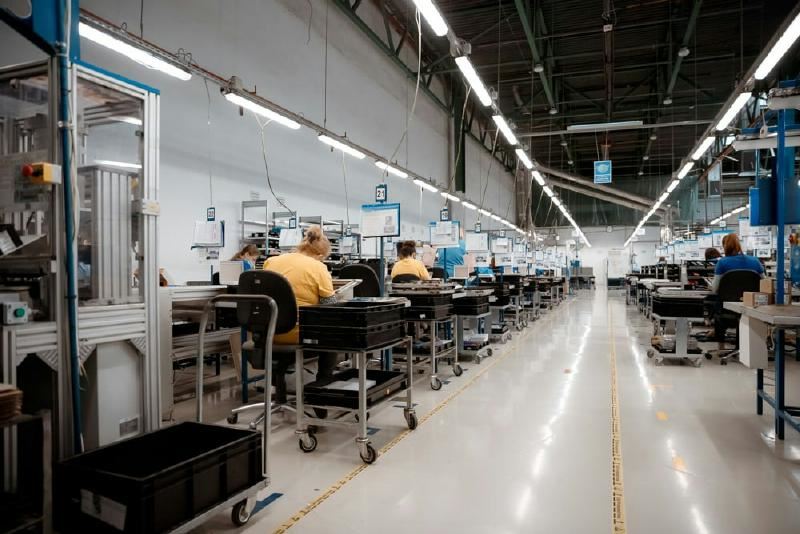Moldova’s electronics industry, once a key player in the Soviet military supply chain, is now emerging as a growing force in global electronics manufacturing. While the sector experienced a steep decline after the collapse of the Soviet Union, it has since shown signs of revitalization through foreign investments, government reforms, and a focus on building a skilled workforce.
From Soviet Supplier to Decline
During the Soviet era, Moldova’s electronics factories played a vital role in producing semiconductors, microchips, and electrical components primarily for defense purposes. However, with the dissolution of the Soviet Union in 1991, these factories faced closure as military contracts disappeared and the market economy failed to support their operations. The electronics industry, along with much of Moldova’s manufacturing base, collapsed, leading to economic hardship and high unemployment in the sector.
Investment-Led Recovery
The turnaround in Moldova’s electronics sector began in earnest around 2019, driven by foreign investments and targeted government initiatives. To attract international companies, Moldova established Free Economic Zones (FEZs) and Industrial Parks, which offered tax incentives, customs exemptions, and relaxed regulatory measures. These zones became essential in revitalizing the electronics industry.
One such initiative is the Moldova Innovation Technology Park (MITP), a virtual platform that offers companies a simplified 7% flat tax on turnover, aiming to reduce administrative burdens and boost investments in high-tech sectors, including electronics. This tax regime and access to a well-educated workforce at lower costs than in Western Europe have made Moldova an attractive destination for electronics companies.
Foreign Companies and Local Collaboration
Foreign direct investment has played a critical role in boosting the electronics sector. Companies like Beurer, Magnetec Components, and Steinel have partnered with local firms to stimulate innovation and production capacity. These collaborations have helped the industry recover from its post-Soviet struggles and paved the way for further development.
A key player in Moldova’s recovery is ADD Grup, a leading supplier of smart metering systems. ADD Grup’s success illustrates how Moldovan firms have leveraged foreign partnerships to expand globally. “We’ve managed to operate in over 27 countries, supplying approximately 8 million smart meters worldwide,” said Ruslan Casico, Head of Sales and Marketing at ADD Grup. The company’s international presence is indicative of Moldova’s growing role in the electronics supply chain.
ELIRI, another Moldovan electronics company, specializes in producing ultra-thin microwires that are used in telecommunications and medical devices. ELIRI’s production of more than 50 million kilometers of microwires demonstrates the technical capability Moldova still possesses in niche electronics manufacturing markets.
Focus on Education and Workforce
The industry’s growth is closely linked to Moldova’s efforts to build a skilled workforce. By adopting a dual education system that combines formal education with practical training in electronics companies, Moldova has created a steady pipeline of talent. This system helps students graduate with the hands-on experience needed to work in a sector that demands technical expertise.
Currently, around 210 companies operate in Moldova’s electronics sector, employing over 14,000 people. The Association of Electronics Companies in Moldova (ACEM), which represents 27 electronics firms, has been instrumental in promoting collaboration between industry players and educational institutions. The sector’s contribution to Moldova’s economy continues to grow, with ACEM members generating over $100 million in turnover in 2023.
Increasing Exports
Moldova’s electronics exports have steadily risen, nearly doubling in the past five years. In 2022, electronics exports reached $535 million, accounting for 12.5% of Moldova’s total exports. Key products include high-tech cables, wires, printed circuit boards (PCBs), and transformers, with cables and wires making up nearly 89% of the sector’s output.
Moldova is increasingly recognized for its contributions to the global market, particularly through electronics manufacturing services (EMS) and electronic contract manufacturing (ECM). These services allow foreign companies to leverage Moldova’s lower production costs while maintaining high-quality standards.
Government Support and Industry Growth
Moldova’s government continues to support the electronics industry by offering favorable policies that encourage investment and innovation. The MITP initiative, coupled with other tax incentives in FEZs and Industrial Parks, has positioned Moldova as a cost-effective location for electronics manufacturing. Companies like Elektromanufacturing S.A., which specializes in inductive electronic components, have benefited from these open fiscal policies. “We have successfully operated in Moldova since 2013, thanks to its investor-friendly legislative environment,” said Oleg Burlacu of Elektromanufacturing.
Additionally, Moldova’s proximity to both the European Union and Eastern European markets gives the country a strategic advantage in logistics, making it easier for companies to serve multiple regions efficiently.
Challenges and Future Outlook
Despite these gains, challenges remain for Moldova’s electronics industry. Infrastructure limitations, a small domestic market, and competition from established manufacturing hubs like China and Eastern Europe pose ongoing obstacles. However, the sector’s recent growth suggests a promising future, provided Moldova continues to build on its current trajectory.
The electronics sector’s development also ties into Moldova’s broader economic diversification efforts. By focusing on industries such as electronics and IT, Moldova aims to reduce its reliance on agriculture and increase its integration into global supply chains.
In conclusion, Moldova’s electronics industry is experiencing a revival after decades of decline. Through strategic investments, government support, and a focus on workforce development, the country is making strides in the global electronics market. While challenges remain, the sector’s steady growth and increasing exports reflect a country on the rise in this highly competitive industry.









